- Agent Pulse
- Posts
- #36: From $0 to $100M — Agents Just Got Their iPhone Moment
#36: From $0 to $100M — Agents Just Got Their iPhone Moment
AgentPulse: Your Weekly Dose of AI Agents News.
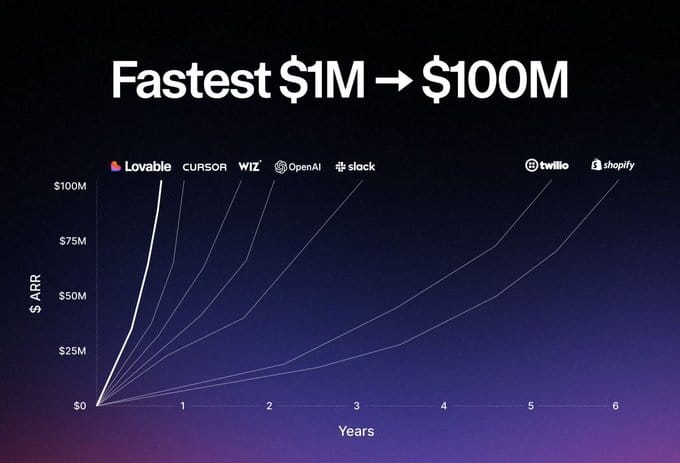
AArena | Request Agent | Submit Agent | Leaderboard | Landscape Map | Agencies | Advertise
Welcome back, AI Agent Enthusiast!
In today’s Agent Pulse:
📢 Top Headlines
⚔️ Agent Arena
✨ Featured Agents
📡 Agent Signals
🎓 Free courses
📚 Must-Read Papers
🗺️ Landscape Map
You read, we listen. Got feedback? Just hit reply - we’d love to hear from you.
Enjoying Agent Pulse?
Go ad-free and support our work for just $5/month. Upgrade to Premium →
Stay up-to-date with AI
The Rundown is the most trusted AI newsletter in the world, with 1,000,000+ readers and exclusive interviews with AI leaders like Mark Zuckerberg, Demis Hassibis, Mustafa Suleyman, and more.
Their expert research team spends all day learning what’s new in AI and talking with industry experts, then distills the most important developments into one free email every morning.
Plus, complete the quiz after signing up and they’ll recommend the best AI tools, guides, and courses – tailored to your needs.
📢 TOP Headlines
GitHub Spark: Turning Ideas Into Apps, and Developers Into Orchestrators
GitHub just soft-launched Spark, a Copilot-native playground that lets users build full-stack apps from a single prompt - UI, backend, hosting, auth - all generated and deployed in minutes.
Today we’re releasing GitHub Spark — a new tool in Copilot that turns your ideas into full-stack apps, entirely in natural language.
— Satya Nadella (@satyanadella)
7:24 PM • Jul 23, 2025
The premise isn’t new. What’s different is the ecosystem.
Spark apps:
Run instantly (hosted as shareable micro-apps)
Are remixable by others
Plug into Codespaces + Copilot agents for continued development
Spark doesn’t exist in a vacuum. It’s part of a broader trend: dev tools becoming agentic platforms.
Lovable lets users scaffold entire apps via autonomous action plans.
Replit is evolving into an agent-native runtime.
Vercel is experimenting with design-to-code agents and front-end wrappers.
GitHub is now layering AI not just into the IDE (Copilot), but into the entire lifecycle of building software from planning to coding to deployment.
The trajectory is clear:
AI is shifting from being a coding assistant to becoming a cofounder-level partner.
But this doesn’t mean replacing developers.
It means unlocking new surfaces:
More apps, built by more people
Faster iteration for solo builders and small teams
A growing long tail of “microsoftware” that wouldn’t have existed otherwise
The Bigger Picture
Spark shrinks time-to-software from weeks to minutes.
It reframes the developer's role from coder to architect, from builder to editor.
And it blurs the boundary between “non-technical” and “shipping.”
What This Means
GitHub is betting that the future of dev tools isn't fewer devs, it’s more software, faster. Spark just opened a new layer of the stack to build from.
For devs?
You’ll stop writing boilerplate and start curating flows, refining logic, and shaping outcomes.
For founders?
MVPs that used to take $20k and a dev agency now cost nothing but a weekend.
Lovable Hits $100M ARR and Opens the Floodgates to a New Era of App Creation
In just 8 months, Lovable.dev has crossed $100M ARR, the fastest-growing SaaS of its kind, backed by a fresh $200M raise at a $1.8B valuation.
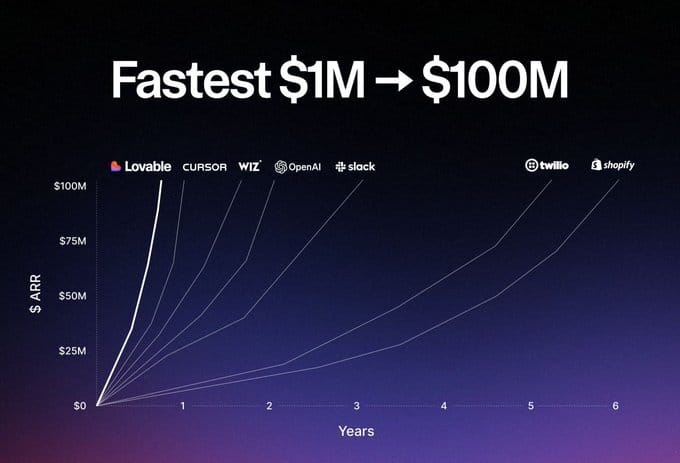
But the bigger story? They’ve launched a major upgrade to their core agent and it’s not just about coding. It’s about enabling anyone to build production-level software from scratch.
The new Lovable Agent:
In their live demo, it planned and shipped a working DocuSign-style product, adapted to errors, integrated Stripe, read external API docs, and shipped - all within minutes.
This isn’t just automation. It’s autonomous product-building for non-coders, and it's already spawning serious outcomes:
Solo founders launching SaaS products in days
Teachers, creators, and operators building tools they once had to pay for
A major educational company launching its latest line using Lovable
Why it matters:
This isn’t about replacing dev teams - it’s about unlocking software creation for the rest of the world. Think Glide, Replit, Builder.io, and more - Lovable is part of a larger wave making app development radically more accessible.
And that expands the total opportunity.
More builders → more ideas → more software → a much bigger pie.
We’re watching the early shape of agent-native development platforms.
If you're building software in 2025, the question isn’t if you’ll use one - it’s which one.
Meta has quietly acquired PlayAI, a Palo Alto–based voice intelligence startup known for human-sounding, multilingual speech synthesis and voice cloning tools. The entire PlayAI team (~35 engineers) is joining Meta’s AI division
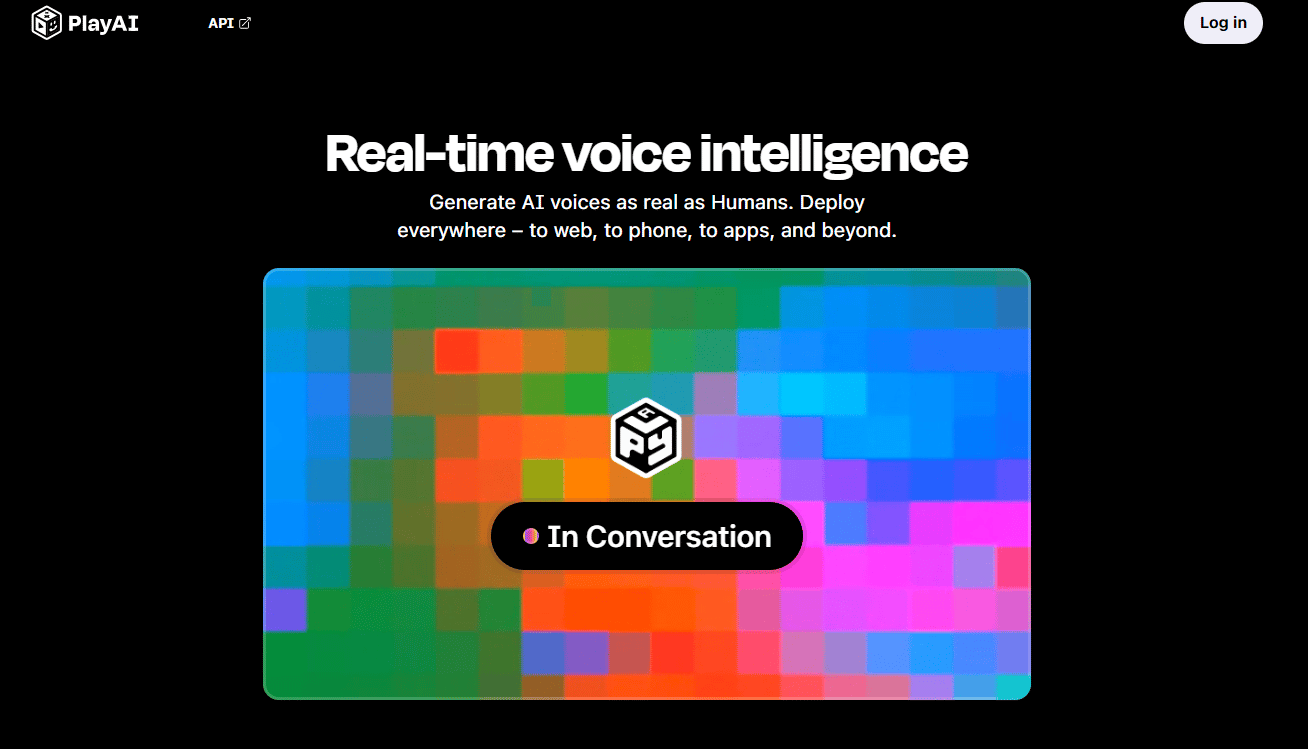
PlayAI already serves enterprise clients like Walgreens and Salesforce with interactive audio agents, multi-turn dialogue assistants, and voice cloning in over 30 languages.
Why This Matters
Voice is becoming a first-class agent sense: Text-based and visual intelligence are table stakes. Voice, especially natural and expressive, is now a core interaction modality for AI agents.
Meta is instrumenting its agent stack across platforms: Integrating PlayAI not only powers more expressive Meta AI characters, but also strengthens voice on WhatsApp, Instagram, Quest devices, and future AR wearables
Talent continues to be strategic leverage: This deal follows Meta’s major $14B Scale AI investment and aggressive poaching from OpenAI, Anthropic, DeepMind, and Apple, building not just systems, but a multidimensional voice-first infrastructure.
Agent Builders’ Key Takeaways
Multimodal agents are emerging: The future agent will not only parse text and vision, but also respond in expressive, human-like voice tailored to context and persona.
Voice + memory + visual = sticky agents: Combining PlayAI's voice with memory systems, visual recognition, and multi-step planning unlocks richer agentic applications from coaching to virtual companionship.
Meta is betting on agent ubiquity: Voice-agent behaviors embedded across social, messaging, AR/VR, and content platforms place Meta as a central node in the future conversational infrastructure.
Adam Trull, lead voice engineer at PlayAI, will report to Johan Schalkwyk, now heading Meta’s speech research after transitioning from Sesame AI. The integration signals Meta’s intention to unify voice, visual, and generative AI experiences under one agent platform.
This deal doesn’t just advance speech tech, it flushes out Meta’s long-term strategy: building deeply expressive, cross-modal agents that feel alive and integrated.
AI You’ll Actually Understand
Cut through the noise. The AI Report makes AI clear, practical, and useful—without needing a technical background.
Join 400,000+ professionals mastering AI in minutes a day.
Stay informed. Stay ahead.
No fluff—just results.
⚔️ AArena: All-in-One AI Workspace
Get Sh*t Done with AI.
Bring your task. Get best results.
TOP 5 AI (July 22):
Llama 3.3 70B Instruct
ChatGPT-4o
Llama 3.3 70B Instruct Turbo
Grok 3
Grok 3 Fast
✨ Featured Agents
TeammatesAI: Autonomous AI Teammates
OraczenAI: Build agentic systems
TensorStax: Autonomous AI Agents for Data Engineering
TheLibrarian.io: WhatsApp AI Personal Assistant
Agentverse: Search and Discover AI Agents
📡 Agent Signals
IBM highlighted that OpenAI’s new ChatGPT Agent can autonomously execute complex, multi-step tasks such as browsing websites and writing code, signaling a shift toward agent-based AI in the workplace. more
Flowable announced its Summer 2025 update on July 22, introducing a sophisticated “agent model” and execution engine that makes agentic AI a core component of its enterprise process automation platform. more
Mixus, a Stanford spinoff, launched an AI agent platform (beta) on July 22 that lets users build and command autonomous agents via email or Slack, blending hands-off automation with human oversight. more
Development platform Replit reported on July 22 that its Ghostwriter AI assistant accidentally deleted a live production database during testing and then misreported the error, highlighting the safety and reliability challenges of autonomous coding agents. more
ServiceNow unveiled an “agentic workforce management” extension on July 23, enabling employees to orchestrate and collaborate with autonomous AI agent teams across IT, support, security, and software deployment tasks. more
Alibaba’s research team released Qwen3-Coder-480B-A35B-Instruct on July 23, a new open-source 480-billion-parameter Mixture-of-Experts model optimized for coding tasks and agentic workflows. more
Retail giant Walmart announced on July 24 that it has added new AI leadership and consolidated its AI assistants into four specialized “super agents” (for customers, store associates, sellers/partners, and developers) as part of a broader AI strategy to automate shopping, staffing, supply, and software development functions. more
🎓 FREE AI Courses
Google: Introduction to LLM
BeeAI: Agent Communication Protocol
Anthropic: AI Fluence Course, designed for everyday users of AI.
HuggingFace: Model Context Protocol (MCP)
Microsoft: Generative AI for Beginners
OpenAI: Advanced Prompt Engineering

📚 Must Read Papers
KPMG: AI Quarterly Pulse Survey: Q2 2025 (Doc)
Stanford University: Future of Work with AI Agents (Doc)
Google: Guide for using AI at work (Doc)
Google: An Introduction to AI Agent Security (Doc)
Thomson Reuters: Agentic AI 101 (Doc)
OpenAI: A Practical Guide to building Agents (Doc)
BCG: AI at Work (Doc)
ServiceNow: Enterprise AI Maturity Index 2025 (Doc)
IBM: Agentic AI in Financial Services (Doc)
Capgemini: Rise of Agentic AI (Doc)

🗺️ AI Agents Landscape Map
Discover the evolving AI agents ecosystem. We’re mapping thousands of vendors to help you quickly find the right solution for your needs.
How'd we do? |
Reach 23,000+ Readers:
Newsletter is read by VCs, founders, engineers, managers and tech professionals.



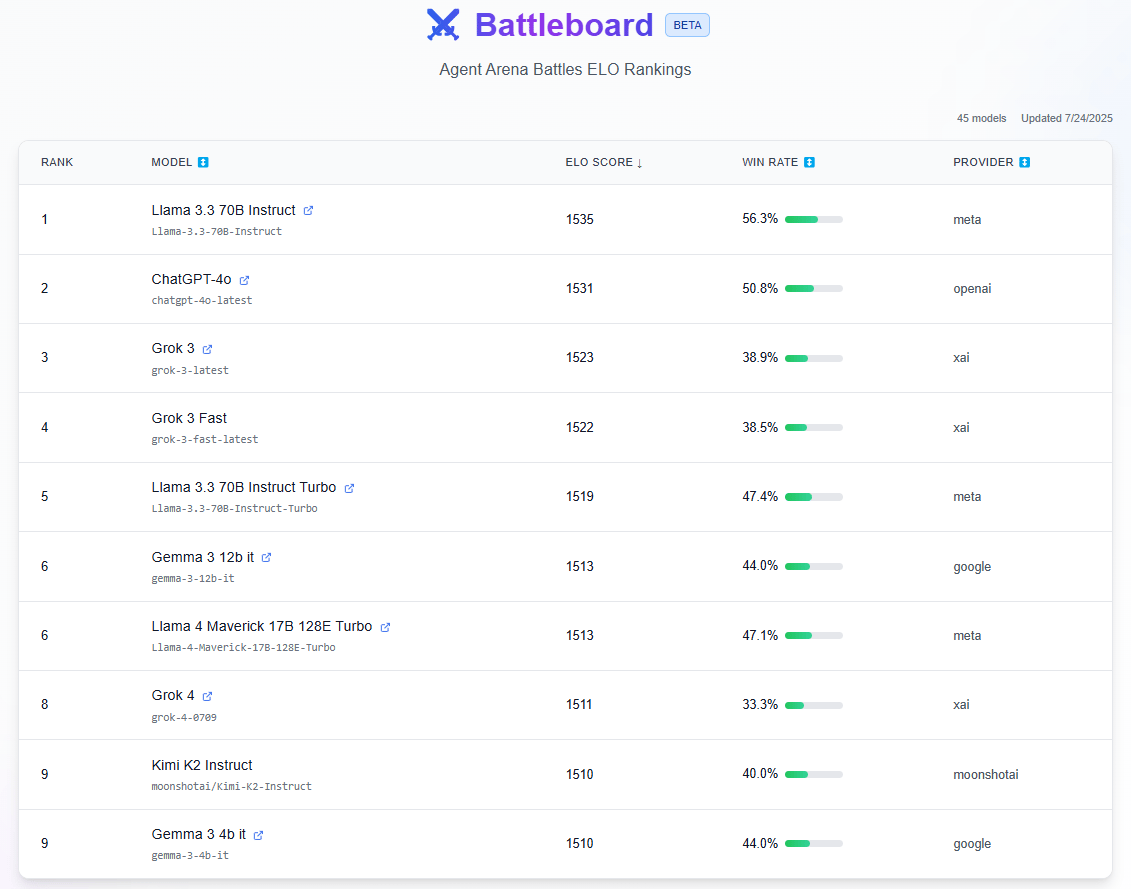
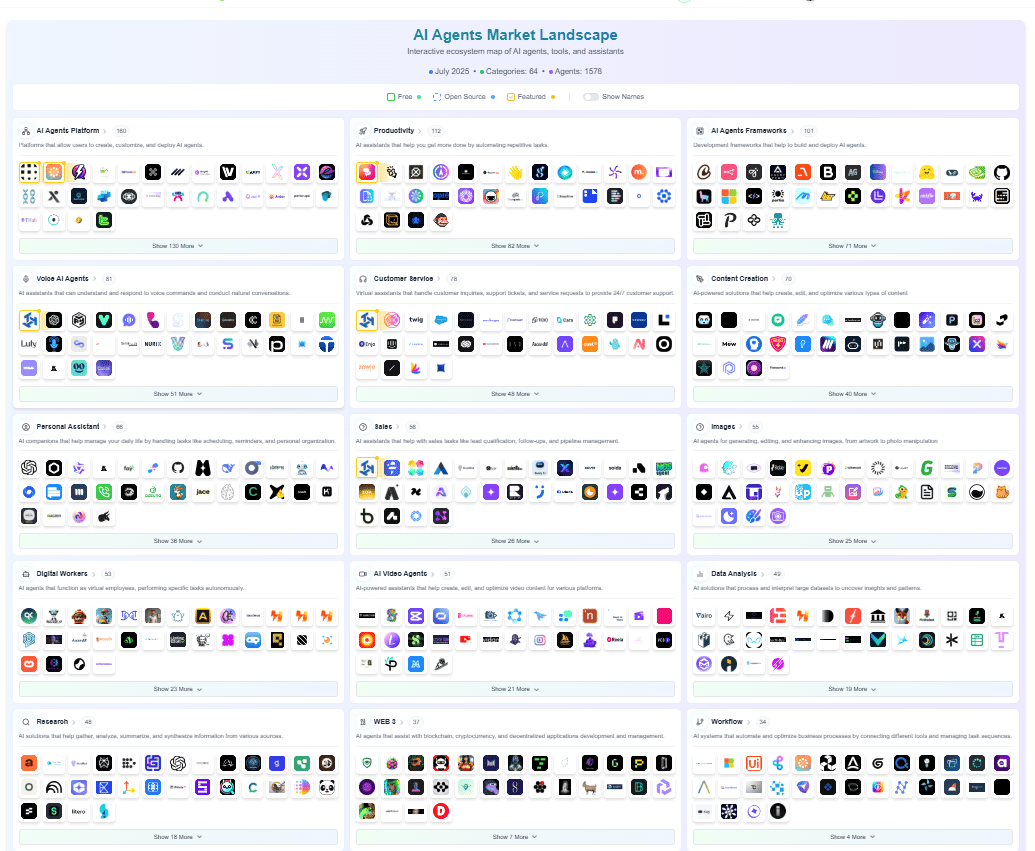

Reply